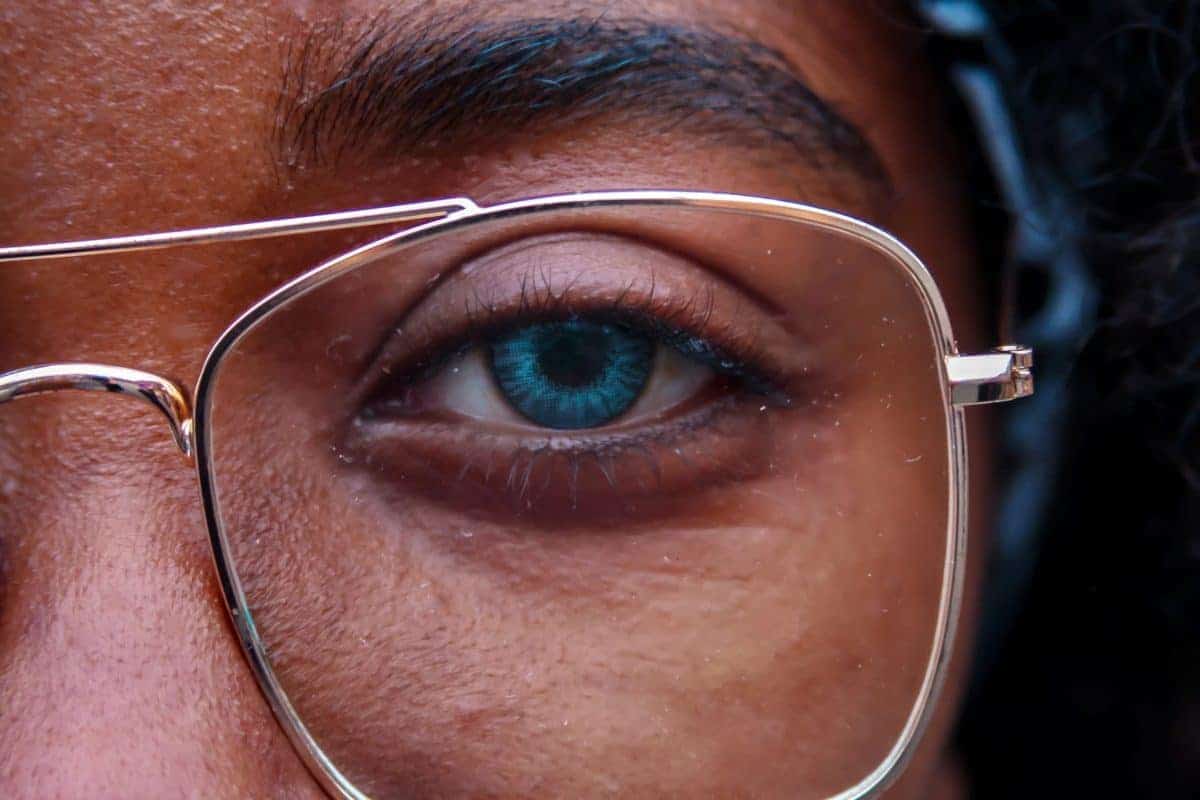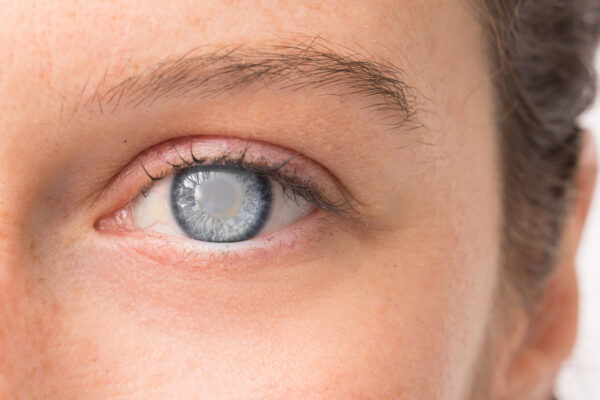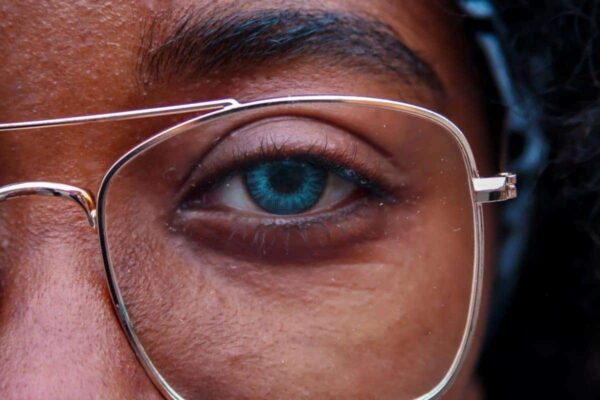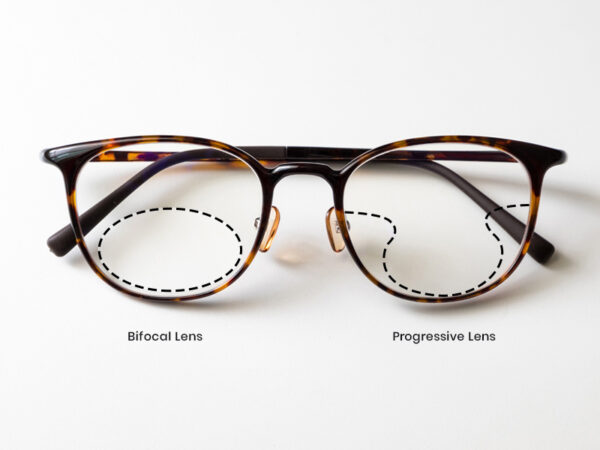Things you should know
about adapting to Progressive lenses
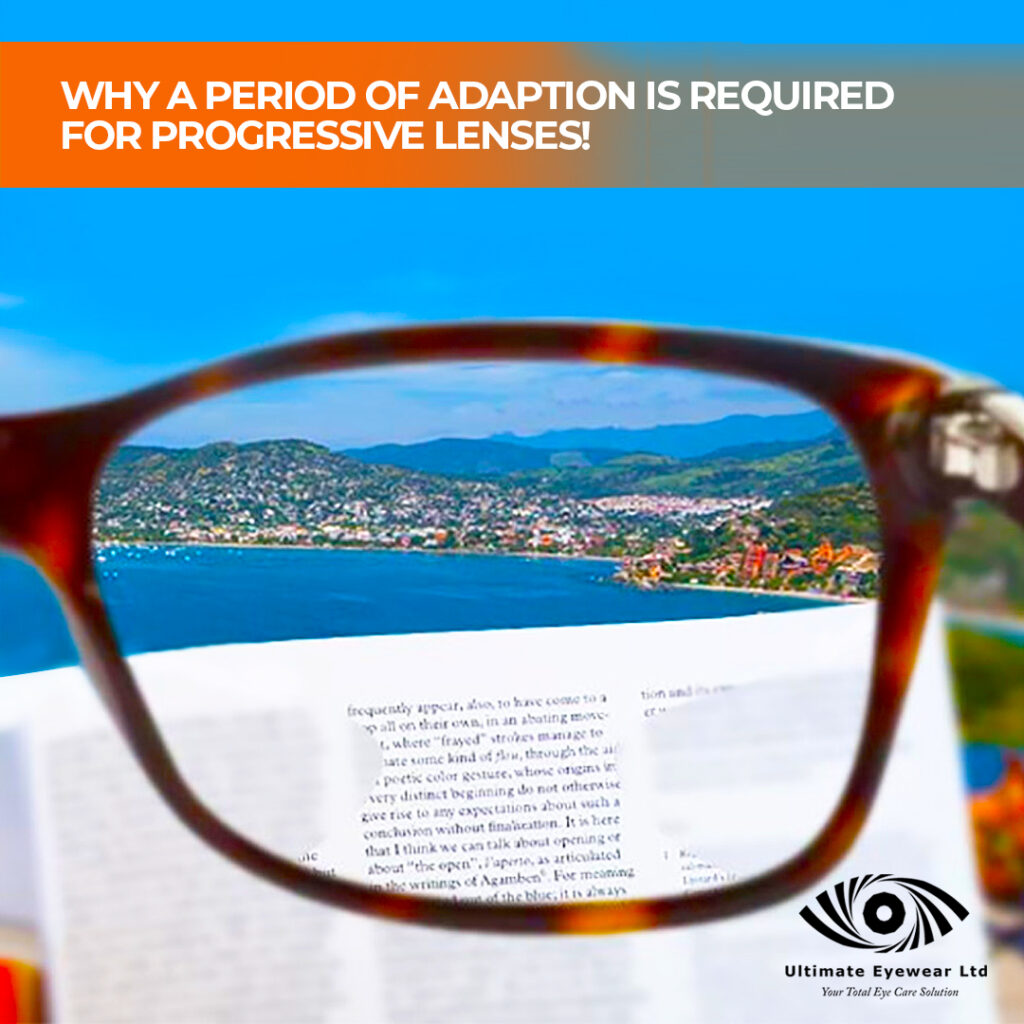
If you purchase new progressive lenses after every 2 years, you’ve heard your Eye Care provider say that it may take up to 2 weeks to fully adapt to your new spectacles. Ever wondered why?
There are many reasons why your eyes may need time to adjust and this adjustment period varies between patients. Some take a few days while some might take a few weeks to fully adapt.
Some believe it’s because of the new prescription, but in reality, your prescription can stay the same yet your eyes will still need time to adjust, and here are some reasons why.
Any change in prescription, no matter how small will require time for the brain to adjust to receiving the new images/ signals.
Another reason why your eyes will need time to adjust, is the change in your lens material.
When changing from one lens material to the next, the passage of light through the material behaves differently and the brain simply needs a little time to adjust to this change.
Selecting a frame with a different front curvature will require a different base curve for your lens. This change will affect the image created by the lenses, therefore requiring the eyes to adapt.
A change in the shape of your frames will also lead to the need for adaptation. For example, a simple thing like changing from a round frame to a square frame will require time for adaptation.
Let’s say the new rectangle frame you selected has a bigger or smaller frame size than the one you previously wore, this will also require you to have a change in your lens size. This change will require adaptation!
Now imagine that all these little changes we just discussed are taking place at the same time and you should now understand why moving from one pair of spectacles to another will require a period of adaptation with progressive lenses.
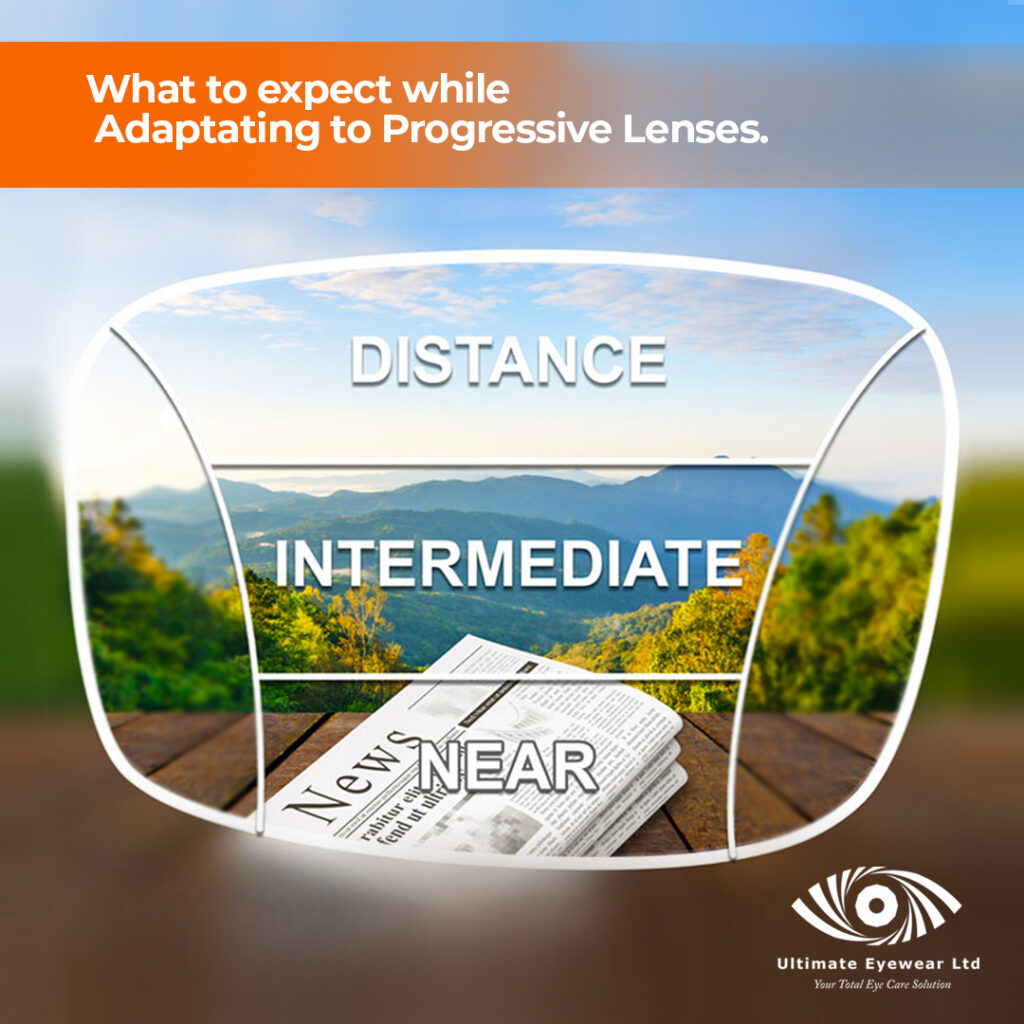
You may have heard stories about adapting to progressive lenses. One story that stands out, is the fear of using stairs, or an uncomfortable feeling when on the stairs. This fear stems from the different powers in the progressive lenses that gradually change from near to far.
This differentiates progressive lenses from single vision lenses that only have one power over the entire lens or bifocal lenses that have 2 set powers; so all in all, progressive lenses require adaptation.
Here’s what you can expect while adapting to progressive lenses. Not everyone will experience all of these symptoms, however, its better you know what to expect, so you will be prepared.
Some may experience; headaches, dizziness, nausea, feeling unsafe using stairs, and issues with depth perception, that’s where you’re not sure how far objects are from you.
Some may also have difficulty adapting during the first few minutes, challenges focusing between the intermediate and near distance, or you may even experience peripheral vision distortion – which feels like a narrow field of vision.
These symptoms may sound scary but the GOOD thing is that they will go away! The benefits of progressive lenses outweigh the initial challenges. It’s a versatile lens that will allow you to live life to its FULLEST and it’s well worth the adaptation time. Progressive lenses require you to use your head, eyes and posture a little differently to get the most out of your lenses.
We know what you’re thinking, “How can I quickly and easily adapt to Progressive lenses” and we have the answers for you!
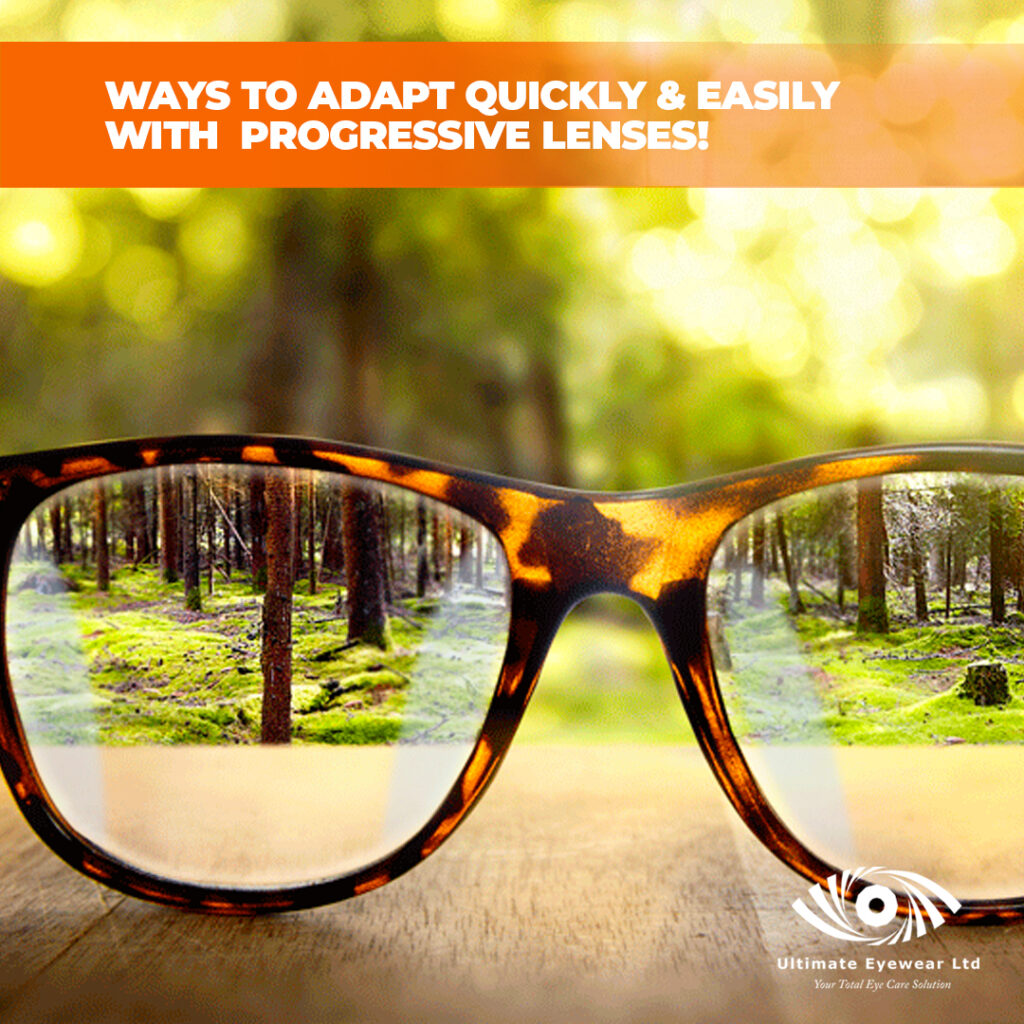
Here are a few ways to quickly adapt to progressive lenses!
Ensure your progressive lenses are your primary pair of eyeglasses. In other words, refrain from going back and forth between your previous pair and your progressive lenses as it will only take longer for you to adjust.
Progressive lenses have 3 main areas; distance, intermediate, and near. You’ll need to find and use these new areas of your lenses correctly, instead of only using the space most convenient to you.
Ensure you learn the zones, for example, the top is for distance, the middle is for intermediate and the bottom is for near vision. Once you learn these zones, you’ll need to use them correctly to experience the optimal benefits of your progressive lens.
One of the most important aspects of adaptation is ensuring that you have a comfortable frame that is well-adjusted to your face. With that said, ensuring your lenses are fitted well, is also a big aspect of adaptation. Upon collection of your progressive lenses, the team at Ultimate Eyewear Ltd will also share additional tips on how to adapt quickly. 😉
Remember, if you experience symptoms of Presbyopia, book your eye exam and our optometrists will recommend the best prescription lens for you.
Opening Hours
Monday – Friday : 8:00AM – 5:00PM
Saturdays: 9:00AM – 1:00PM

